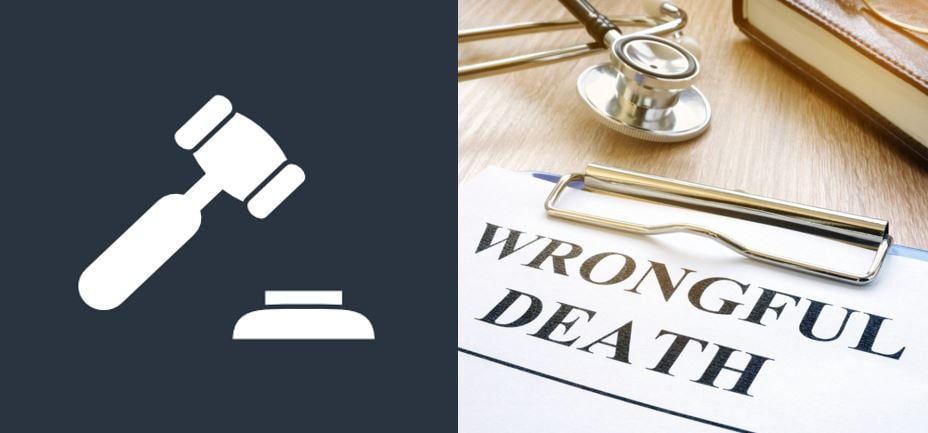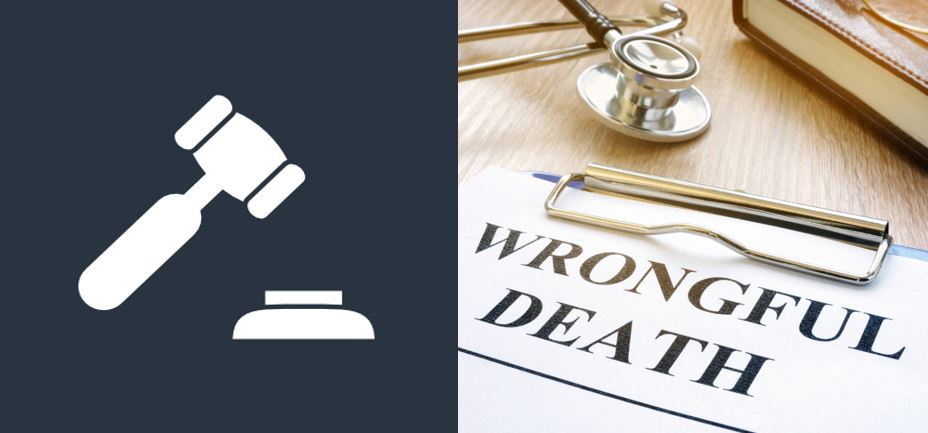
Witness testimony is critical to establishing facts and supporting the arguments of both parties involved in wrongful death claims. Witnesses can generally be categorized into two groups: lay witnesses and expert witnesses. Each category offers distinct and valuable perspectives that can significantly impact the case outcome. Understanding the disparities between these two types of witnesses is crucial for constructing a persuasive case.
For individuals navigating wrongful death claims, seeking advice and assistance from the wrongful death attorneys at Caruso Law Offices can offer invaluable expertise and support. This piece delves into the specific roles of lay and expert witnesses in wrongful death claims, examining how their testimonies contribute to the legal process.
Lay Witnesses: First-Hand Accounts
Lay witnesses provide testimony based on their knowledge and observations related to the case. They are not required to have specialized training or expertise; their value lies in their direct connection to the events. Lay witnesses can include family members, friends, coworkers, or bystanders with relevant information about the incident or the deceased.
For example, in a wrongful death case resulting from a car accident, a lay witness might be someone who witnessed the collision or interacted with the victim shortly before or after the incident. Their testimony can help establish the circumstances surrounding the death and provide a human perspective on the impact of the loss.
The Role of Lay Witnesses
Lay witnesses play a vital role in wrongful death claims by offering first-hand accounts that can corroborate or challenge the evidence presented. Their testimonies can provide context and clarity to the facts of the case, helping the court understand what happened and how it affected those involved.
Lay witnesses can also testify about the emotional and financial impact of the loss on the surviving family members. For instance, a spouse or child may describe how the death has affected their daily lives, relationships, and financial stability. This personal insight can be powerful in conveying the extent of the damages suffered by the family.
Expert Witnesses: Specialized Knowledge
Expert witnesses, on the other hand, are individuals with specialized knowledge, skills, or training in a particular field relevant to the case. They are called upon to provide their professional opinions based on their expertise. Expert witnesses include medical professionals, forensic scientists, economists, and accident reconstruction specialists.
In a wrongful death claim, expert witnesses can offer critical insights into complex issues that lay witnesses are not qualified to address. Their testimony can help establish causation, quantify damages, and explain technical aspects of the case to the court.
The Role of Expert Witnesses
Expert witnesses play a crucial role in wrongful death claims by providing detailed, professional analyses that support or refute the arguments presented. Their testimony can help establish key elements of the case, such as the cause of death, the extent of injuries, and the financial impact of the loss.
For example, a medical expert might testify about the severity of the injuries sustained by the deceased and how they led to death. An economist might provide an analysis of the financial losses suffered by the family, including lost income and future earnings. These expert opinions can be pivotal in helping the court reach an informed decision.
Combining Lay and Expert Testimonies
In wrongful death claims, the combination of lay and expert testimonies provides a comprehensive view of the case. Lay witnesses offer a personal perspective, while expert witnesses provide technical and specialized insights. They create a well-rounded narrative that can effectively support the plaintiff’s claims.
For instance, in a wrongful death case involving medical malpractice, a lay witness might testify about the changes in the deceased’s condition after a medical procedure. An expert witness, such as a medical specialist, could then explain how the procedure was performed incorrectly and how it contributed to the death.
Legal Requirements for Witness Testimony
Both lay and expert witnesses must meet certain legal requirements to testify in a wrongful death claim. Lay witnesses must have first-hand knowledge of the events they describe and testify truthfully based on their observations. The opposing counsel can challenge their credibility through cross-examination.
Expert witnesses must have specialized knowledge and demonstrate their qualifications and the reliability of their methods. Courts often require expert witnesses to establish that their testimony is based on sound scientific principles and methodologies. This is known as the Daubert standard, which ensures that expert testimony is relevant and reliable.
Preparing Witnesses for Testimony
Preparing witnesses for testimony is a critical aspect of building a strong wrongful death case. Attorneys work closely with lay and expert witnesses to ensure they understand the legal process and are ready to present their testimonies effectively. This preparation includes reviewing the facts of the case, practicing direct and cross-examinations, and addressing any potential challenges that may arise during testimony.
Preparation involves helping lay witnesses recall and articulate their observations clearly and accurately. For expert witnesses, preparation includes ensuring that their analyses are thorough and their methodologies are sound.
Challenges in Witness Testimony
Witness testimony can face several challenges in wrongful death claims. Here are some key points to consider:
- Emotional impact on lay witnesses: Lay witnesses may be emotionally affected by the case, impacting their ability to testify clearly and coherently.
- Scrutiny of expert witnesses: Expert witnesses may face intense scrutiny over their qualifications, experience, and the validity of their analyses and conclusions.
- Challenges from cross-examination: Both lay and expert witnesses can encounter tough questions during cross-examination, where opposing counsel seeks to undermine their credibility and reliability.
- Reinforcing testimony reliability: Lawyers should reinforce the reliability and relevance of their witnesses’ testimonies, providing supporting evidence and context to strengthen their case.
The Importance of Credibility
The credibility of both lay and expert witnesses is paramount in wrongful death claims. Courts rely heavily on witness testimonies to understand the facts and make informed decisions. Doubts about a witness’s credibility can weaken the case and affect the outcome.
Attorneys must ensure that their witnesses are well-prepared but also trustworthy and consistent in their testimonies. Establishing credibility involves presenting witnesses who are honest, articulate, and confident in their knowledge and observations. Credibility can make the difference between a successful claim and an unfavorable verdict.
The Role of Technology in Witness Testimony
Technology is increasingly enhancing witness testimony in wrongful death claims. Video depositions, virtual reality reconstructions, and computer simulations can help lay and expert witnesses present their testimonies more effectively. For instance, video depositions allow witnesses to provide their testimony remotely, which can be especially useful for expert witnesses far from the court.
Virtual reality and computer simulations can help experts demonstrate complex scenarios, such as accident reconstructions, making it easier for the court to understand technical details. These technological advancements can enhance the clarity and impact of witness testimonies, ultimately contributing to a stronger case.
Interesting Related Article: “4 Situations That Warrant a Wrongful Death Lawsuit“









